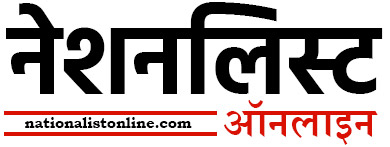SHREYA KEDIA
Child-trafficking of minor girls and boys, for sex, domestic slavery and labour, has been rampant in the country since a long time, and has been declared unlawful. Yet it continues to thrive. However, what is intriguing is a new form of trafficking – of newborns, that too in biscuit cartons – that has been invented by human traffickers. The baby-sale racket in Kolkata, from which more than 10 newborns have been rescued, is disgusting.
It cannot be a mere coincidence that the 10 babies, aged between one month and ten months, who were recovered from an old-age home, were all girls. A probable reason for the smuggling of newborn girls could be the Government’s recent move to tighten laws surrounding surrogacy in the country. Complex rules and lengthy bureaucratic procedures surrounding adoption are pushing childless couples towards this illegal adoption market.
That there were coordinated efforts from the hospital staff and owner, gynaecologists, home owners and various agencies who had been masquerading as NGOs, not to forget the dubious adoption chain, cannot be ruled out. What is even more astonishing is that the mothers of the babies were told that they had given birth to still-born children. Police interrogation has revealed that the modus operandi of the racket was to target unmarried mothers and impoverished parents, and convince them to ‘sell’ their unwanted newborns to childless couples by using fake documents.
It was only earlier this month that the Mysore police cracked a child-selling-and-buying racket, which used to pick abandoned children and beggars from the streets, and orphans and wards of single-parents, to sell them off. At around the same time, in Chennai, six hospital staffers were arrested in connection with an illegal racket. They were charged with stealing babies and also young children in a bid to sell them to childless couples.
All of these incidents point to the fact that hospitals have been acting as a cog in a giant child-smuggling racket. Such cases highlight the ever-growing problem of child trafficking in the country.
As per the data from the National Crime National Crime Records Bureau (NCRB), cases of human trafficking in India increased by 25 per cent in 2015, compared to the previous year, with more than 40 per cent of cases involving children being bought, sold and exploited as modern-day slaves. The data also revealed that trafficking of minor girls, which is the second-most prevalent trafficking crime, surged 14 times over the last decade, and increased by 65 per cent in 2014.

It is astonishing that until now, India had no credible data on child trafficking. While the data on human trafficking revealed the number of victims, it did not classify them into adults and children. The first ever report released by NCRB in September this year, revealed that for 2015, out of 6,877 cases of human trafficking in the country, 3,490 (51 per cent) involved children. Of these, 3,087 (88.5 per cent) were cases registered under Section 366A (procreation of a girl to force her into sex) of the Indian Penal Code. More than 50 per cent cases of human trafficking involved minors – and close to 90 per cent of them were girls trafficked, to be forced into prostitution, in 2015.
Most of the child-trafficking cases happen in rural areas and poor families, because people are not aware of the crime. Poverty, insurgencies, political instability, social backwardness, economic deprivation and lack of employment opportunities are just some of the contributing factors that make the gullible vulnerable. There are also some parents who willingly give away their children, fully aware of the wrongdoing. Others, unaware of the underlying motive of dubious agencies, part with their children in the belief that the kids are being taken away for a better future.
In return, the agencies, which run rackets with the help of middlemen and touts, hand over money to the parents with a promise that the latter’s children would be sent to the city where they will secure good educational and employment opportunities. What is worse is that, even if the children manage to escape from the clutches of such agencies, their rehabilitation becomes another problem for them.
Trafficked girls are either forcibly married off to older men or are pushed into the sex trade or sold off as domestic help. Boys, on the other hand, generally land up as labourers in factories, dhabhas, construction sites and even for illegal trade like drug smuggling etc. What is common between both, however, is that the children are subjected to abuse and exploited in many ways.
Although there is the Immoral Trafficking (Prevention) Act of 1956, to deal with child-trafficking in the country, it imposes penalty only for trafficking of women and children for commercial sexual exploitation, and fails to provide for a comprehensive protection to trafficked children.
Sadly, India has failed to uphold the Palermo protocols –which seek to prevent, suppress and punish trafficking of persons, especially women and children, and supplement the United Nations Convention against transnational organised crime.
It is encouraging that the Government introduced the Trafficking of Persons (Prevention, Protection and Rehabilitation) Bill – the country’s first ever anti-human-trafficking draft law – earlier this year. The Bill seeks to “unify existing anti-trafficking laws, prioritise survivors’ needs, and prevent victims such as those found in brothel raids from being arrested and jailed like traffickers”. But as many activists and NGOs have argued, there are certain loopholes in the way that the draft Bill defines the concept of rehabilitation which needs to be addressed. Given that prior to this draft Bill, the legal framework surrounding trafficking consisted of a number of laws and provisions that were applied in tandem, thereby leaving a legal vacuum when it came to investigation and prosecution, the Bill is welcome. But more needs to be done. Child-trafficking is a form of slavery which requires concerted and cohesive action.
(The writer is Assistant Editor, The Pioneer, with an interest in social issues)
